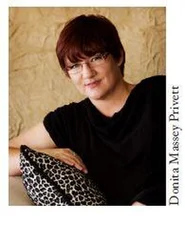CHAPTER ONE
HE WAS A handsome man. A handsome boy, his mother called him, because she started praising his looks when he was five. Before that, he received the compliments children necessarily get: ‘Beautiful baby’ and ‘Isn’t he lovely?’ His father was never there. He left school at fourteen – you could then – and went to work in a market garden, a slaughterhouse and finally a cosmetic factory. The boss’s daughter fell in love with him. He was twenty by then, so they got married. Anita’s father said he would stop her having the money her grandmother had left her, but in the event he was too tender-hearted to do so. It wasn’t a very large sum, but it was enough to buy a house on The Hill in Loughton, twelve miles from London but almost in the country. Woody, as his mother and his wife called him, as someone at school had first named him, hated work and decided never to do any more as long as he lived. There was enough money left to live on, but whether for the rest of his life he didn’t know. He was only twenty-three.
In those days, you had to get married. There were no two ways about it. Living together was not far short of a crime. They were happy enough for a couple of years. His mother died and he inherited her house as well as a small amount of money. Next, her father died. People died at a much younger age in the 1930s. She was an only child, so it was her turn to inherit a parental legacy, and this time it was very much in excess of what Woody got. Because he didn’t work, Woody was always at home. He thought he owed it to himself to keep a close eye on his wife. She was always going to London to buy clothes, always having her hair done, going off for weekends to stay, she said, with girls she had been to school with and who were now married. He wasn’t invited.
A woman came in to do the cleaning. Woody thought his wife could have done that and he said so, but he couldn’t stop it. She paid. She didn’t even look after the child, took very little notice of it as far as he could see. He had read somewhere that once, sixty or seventy years ago, an Act of Parliament was passed letting married women keep the money that was theirs. Before that they had to hand it over to their husbands. He hated that Act. How perfect life must have been when the men got all the money.
When the war came, he was thirty. The horrible possibility of being called up loomed. But he had a stroke of luck. He told the doctor he wanted to know if he was perfectly fit so that he could join up. The navy was his choice. He felt well, he always did, nothing wrong with him – unfortunately. But the doctor found a heart murmur, the result, he said, of pneumonia when he was a child. Woody remembered that pneumonia, remembered most of all his mother’s anxiety and terror. But he was overjoyed, too thankful to dwell much on his heart. He put on a show of sorrow for the doctor and said in a regretful tone that he felt all right and would no doubt live to be a hundred.
A lot of his wife’s friends were always in the house. One of them was in uniform. He wasn’t as good-looking as Woody, but the uniform was no doubt a great attraction. Another young man who was staying nearby was often to be found making himself tea in Woody’s kitchen or drinking it in Woody’s lounge with Woody’s wife. He wasn’t much to look at.
‘You judge everybody by their appearance,’ said his wife. ‘That’s all that counts with you.’
‘I judged you by yours. What else was there?’
If his wife wanted to be unfaithful to him, there was nowhere for her to go. But love or something will find a way. How did he know where she really was on these visits to old school friends he was supposed to accept? His wife had red hair and dark blue eyes; her friend, the one in uniform, eyes the same colour and light brown hair. One afternoon he walked into the kitchen to get money out of the biscuit tin to pay Mrs Mopp – she was really called Mrs Moss, but Mrs Mopp was a funny name and Mrs Moss wasn’t. She was just behind him, too greedy for her cash, he thought, to let him out of her sight. His wife was sitting at the kitchen table holding hands with the one in uniform. Her hand was lying on the American cloth cover of the table and the man’s was lying on top of it, holding it there. They snatched their hands away when Woody came in, but not soon enough. Woody paid Mrs Mopp and walked out, saying nothing to the pair of them, who just sat there, looking down into their laps.
For Woody, anger was cold. Cold and slow. But once it had started, it mounted gradually and he could think of nothing else. From the first, though, he knew he couldn’t stay alive while those two were alive. Instead of sleeping, he lay awake in the dark and saw those hands: Anita’s narrow white one, with the long pointed nails painted pastel pink; the man’s brown one equally shapely, the fingers slightly splayed. The third member of the family Woody was usually aware of. He doubted that Anita was. She ignored the child. Once he saw her run along the hall towards the front door and not see the little boy. She ran into him in broad daylight, knocking him over, not hurting him but leaving him there to pick himself up and start to cry. He wouldn’t miss his mother, glad to see the back of her, no doubt.
Before he did what he meant to do, Woody took the rest of the money out of the biscuit tin and put it in a smaller one that had once held cocoa. The biscuit tin had a picture of variously shaped shortbread biscuits on it and was quite big, maybe twelve inches by eight and three inches deep. It would be big enough, for their hands were small. Anita came and went, with the man in khaki and maybe also with the other man who wore civvies. Woody didn’t care about him. He would disappear when Anita did and wouldn’t call round asking for her. Mrs Mopp came in and cleaned the house. They seldom spoke. There was nothing to say. The boy went to school and could go by himself; he knew he had to and arguing about it was useless. He talked to Mrs Mopp and seemed to like her, but that was of no interest to Woody. He thought a lot about Anita’s money – it took time, that thinking, and delayed his doing what he had to do. There must be a way of getting her to transfer those thousands of hers, and there were quite a few thousands, into his bank account, but she had a suspicious mind.
‘I’m not having a joint account with you, Woody,’ she said. ‘Why d’you want it? No, don’t answer. It’ll be some low-down thing, some monkey business. The answer’s no.’
Pity, but it wouldn’t put him off. Nothing would do that. The best he could achieve was to get hold of her chequebook and write a cheque to himself for a hundred pounds. More would arouse suspicion. As it turned out, there was no problem in cashing it and he was rather sorry he hadn’t made it out for twice as much. Now he had to do the deed before she got her bank statement.
Woody didn’t think about their early days. He didn’t think about what he had once called their ‘romance’. He never harked back to even the recent past, saying to anyone who would listen, ‘It’s over, it’s not coming back. What’s the point of dwelling on it?’ However he did it, there mustn’t be blood. He told Anita he was going to stay with his Auntie Midge in Norwich. She was ill and was likely to leave him her money – a motive for his visit his wife would be sure to believe. Once he was out of the way, he guessed Anita and the khaki man would share a bed, very likely his bed. He would return in the small hours.
Of course he was right. They were there and fast asleep. Having locked the door behind him, he strangled the man first because Anita was a small woman who was no match for him. Then, chasing her round the room, he knocked her to the floor and used the same leather belt on her. It was soon over. The only blood was his own, where they had both scratched him, and there was very little of it. His slaughterman’s experience was of great value to him in removing the right hand and the left hand. Before laying the two hands in the biscuit tin, he took off Anita’s wedding and engagement rings. This was a bonus. He had forgotten about the rings when he was calculating what money he could forage. Of course he could sell them. He could go a long way away, down to Devon or up to Scotland, and find a jeweller who would give him a lot for that diamond ring. Anita had bought it herself. She wanted a diamond ring and he couldn’t afford to pay for it.
Читать дальше












